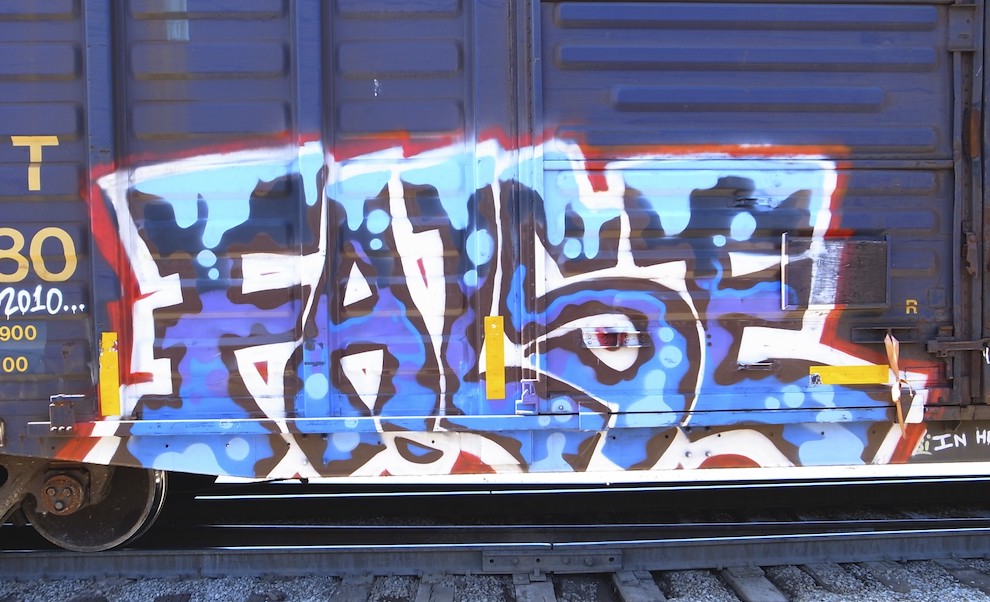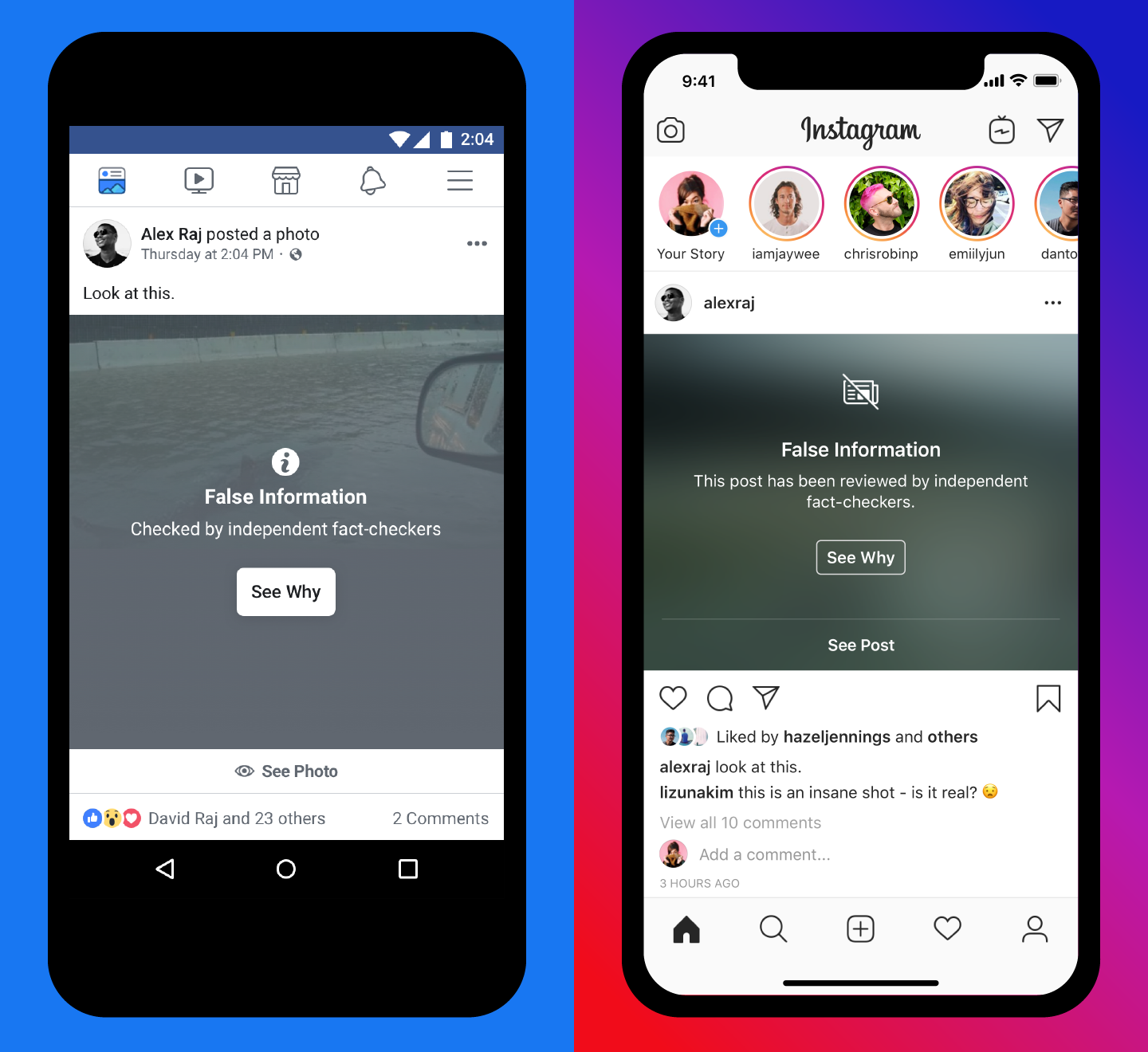
“Disputed by 3rd Party Fact-Checkers” wasn’t cutting it, so Facebook is getting a little more blunt: Over the next month, fake news posts will begin to be labeled, simply, as “False Information,” Facebook announced on Monday as part of a press call and post outlining the ways it’s handling content around the U.S. 2020 presidential election. Fake Instagram posts are also getting clearer, pop-up labels.

“There are no highway sharks.”

One thing that will still not be labeled “False Information,” though, are false Facebook ads placed by politicians, which the company announced recently would be allowed to run without restriction. (As CEO Mark Zuckerberg put it in his Georgetown speech last week: “We don’t fact-check political ads. We don’t do this to help politicians, but because we think people should be able to see for themselves what politicians are saying. And if content is newsworthy, we also won’t take it down even if it would otherwise conflict with many of our standards.”)
Here are some other changes Facebook is making, as outlined by Zuckerberg in the press call. (The full transcript is worth scanning to enjoy Zuckerberg lines like: “Overall, look, Martin Luther King Jr. is an American hero, and his assassination is clearly a major national tragedy.”)
We’re going to label content coming from state-sponsored media. In the U.S., we have the benefit of a free press here, and because of that we think it’s especially important to call out transparently when media coming from any country around the world is acting as an organ of the government and not a free press. So we’re going to label them prominently.
The third thing we’re going to do is we’re going to display clearly on pages what country the page is operated from and the legal name of the person or organization that is operating the page. People are still going to be able to post and follow the content that they want, but for example if a page is about a domestic policy issue, people are now going to be able to see a prominent label that it’s coming from another country.
The fourth thing that we’re doing is we’re also introducing a presidential spending tracker, so it will be easier to keep track of the activity of the different presidential candidates across our platforms.
The company also announced Monday that it had taken down four foreign disinformation campaigns, three from Iran and one from Russia. In the case of the Russian campaign, for instance, “The people behind this operation often posted on both sides of political issues including topics like US elections, environmental issues, racial tensions, LGBTQ issues, political candidates, confederate ideas, conservatism and liberalism. They also maintained accounts presenting themselves as local in some swing states, and posed as either conservatives or progressives.”
Twitter, meanwhile, announced Monday that it’s “working on a new policy to address synthetic and manipulated media on Twitter,” beginning with a “feedback period” in a few weeks that will allow users to submit ideas and proposed changes before the new policy goes live.
For old time's sake, took a look at the top 10 news stories across all of Facebook today. They're from:
1. Ben Shapiro
2. Donald J. Trump
3. Dallas Cowboys
4. Breitbart
5. Daily Caller
6. Ben Shapiro
7. "Intelligence is Sexy"
8. Occupy Democrats
9. Bible Time
10. Delish— Kevin Roose (@kevinroose) October 21, 2019
Notable that Facebook developed its own labeling definition for state-controlled media (viz. rely on a third party), will be interesting to see it in practice https://t.co/o0B634tWpL pic.twitter.com/DbPcBpZyGE
— Alexios (@Mantzarlis) October 21, 2019
And Ben Nimmo, senior fellow for information defense at the Atlantic Council’s Digital Forensic Research Lab, has an interesting thread on what some of the Iranian and Russian posts contained.
Some of the language of these "American" accounts had a really Russian flavour.
"What the future for their children will be?" pic.twitter.com/b1HY6bU9hQ
— Ben Nimmo (@benimmo) October 21, 2019
But some of the posts recreated old IRA memes.
Not just copy-pasted, which many spam artists have done: recreated, without the watermark.
That indicates a real effort going into masking their origins and not leaving fingerprints. pic.twitter.com/5KjSau4PQp
— Ben Nimmo (@benimmo) October 21, 2019